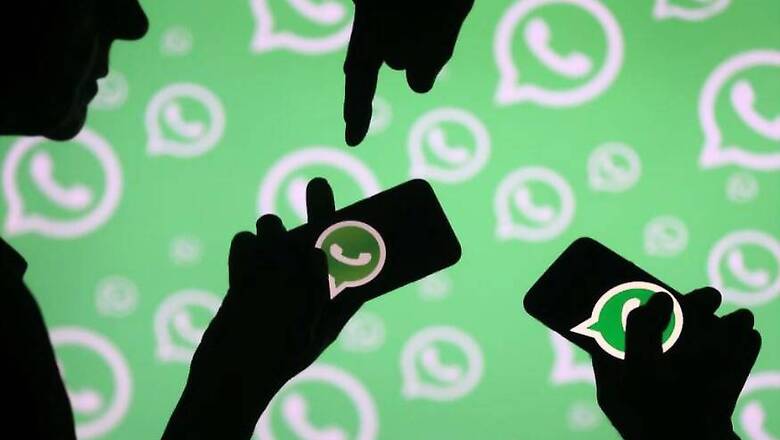
views
New Delhi: From carrying chits inside the exam hall to the ‘Munnabhai formula’ of using Bluetooth, cheaters have certainly kept up with technology. But the paper leak scandal that has embarrassed the CBSE and angered lakhs of students, takes the ‘business’ of cheating to new heights.
The most common route taken by leakers seems to be WhatsApp. In the latest case, the Central Board of Secondary Education (CBSE) received a complaint via fax on March 23, naming a Delhi resident. As per the complaint, the person runs a coaching institute. Delhi Police suspect that the person used four mobile numbers to circulate the question papers on different WhatsApp groups.
In March last year, the HSC Secretarial Practice paper was available on social media minutes before the exam started. This leak, too, was suspected to have originated on WhatsApp.
A similar WhatsApp leak hit the APJ Abdul Kalam University in December ahead of the Applied Electromagnetic exam. Shockingly, suspicion had fallen on an Engineering college teacher.
In 2015, a screenshot of the HSC Bookkeeping and Accountancy paper was circulating on WhatsApp just 30 minutes before students were to appear for the exam. Though exam was scheduled to begin at 11am, students were allowed in the exam hall half-an-hour early.
The modus operandi was a little different in the Staff Selection Commission (SSC) paper leak. The paper wasn’t leaked in advance, but a gang took remote access of their client candidates’ computer during the online examination and solved the question paper for them.
The gang, four of whom have been arrested, did so via the Team Viewer software which allows the user to connect to and control multiple systems without physically accessing them.
Cheating as a money-maker, however, boomed in 2012 when candidates appearing for the AIIMS-conducted medical entrance tests smuggled ear-pieces, spy cameras and Bluetooth devices — all in micro-design to escape attention — into the exam hall.
The spy cameras beamed pictures of the question paper to a ‘control room’ the gang had set up in Greater Noida. In the ‘control room’, the other operatives hunted for answers in medical books and on the internet and whispered it back to the candidate via the ear-piece.
The scandal resulted in tougher checking for subsequent examinations like NEET, where candidates are not allowed to wear full-sleeved shorts, have to wear slippers, are not allowed collared shifts etc. Pictures of candidates’ ears being checked outside exam centres had gone viral last year.
Shady markets are full of tabeez and lockets that can conceal a small camera, while earpieces have shrunk to microscopic sizes to be fitted and removed by ‘experts’. Such stores cater to anyone willing to shell out Rs 8,000 to Rs 15,000.
But if technology can be twisted to cheat, can it not be used to thwart such attempts? Efforts are being made in this direction.
The Mumbai University has a model whereby question papers will be downloaded by colleges after a facial-recognition scan. The downloading and printing process would also be recorded via CCTVs to prevent a leak at that stage.
Herold D'Costa, CEO of Intelligent Quotient Security System (IQSS), who devised the system for the University, also suggests the use of a centralised server, which would house a variety of question papers. Question papers would then randomly be selected and links sent to exam centres to downloaded and print them. The paper would be downloaded by an authorised person or the principal just a few minutes before the exam.
The primary hiccup in this method, however, is connectivity in rural areas and the time taken to print the question paper on the morning of the exam.
Another solution is to install mobile jammers at exam centres to prevent students from using Bluetooth-enabled devices to cheat.
India could also go the Zimbabwe way, where question papers are packaged in tamper-proof exam boxes. These boxes have GPS-enabled sensors and an electronic seal, which can only be opened using a smart key. This key, however advanced, also works in remote areas that face poor connectivity.

















Comments
0 comment